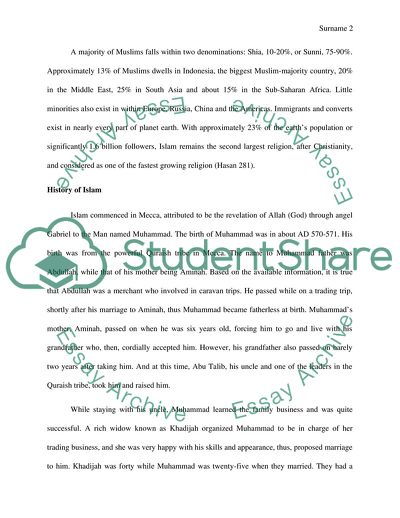Cite this document
(Islamic Politics and Culture: The Main Premises of the Islamic Faith Coursework Example | Topics and Well Written Essays - 1500 words, n.d.)
Islamic Politics and Culture: The Main Premises of the Islamic Faith Coursework Example | Topics and Well Written Essays - 1500 words. https://studentshare.org/politics/1851815-islamic-politics-and-culture
Islamic Politics and Culture: The Main Premises of the Islamic Faith Coursework Example | Topics and Well Written Essays - 1500 words. https://studentshare.org/politics/1851815-islamic-politics-and-culture
(Islamic Politics and Culture: The Main Premises of the Islamic Faith Coursework Example | Topics and Well Written Essays - 1500 Words)
Islamic Politics and Culture: The Main Premises of the Islamic Faith Coursework Example | Topics and Well Written Essays - 1500 Words. https://studentshare.org/politics/1851815-islamic-politics-and-culture.
Islamic Politics and Culture: The Main Premises of the Islamic Faith Coursework Example | Topics and Well Written Essays - 1500 Words. https://studentshare.org/politics/1851815-islamic-politics-and-culture.
“Islamic Politics and Culture: The Main Premises of the Islamic Faith Coursework Example | Topics and Well Written Essays - 1500 Words”. https://studentshare.org/politics/1851815-islamic-politics-and-culture.


